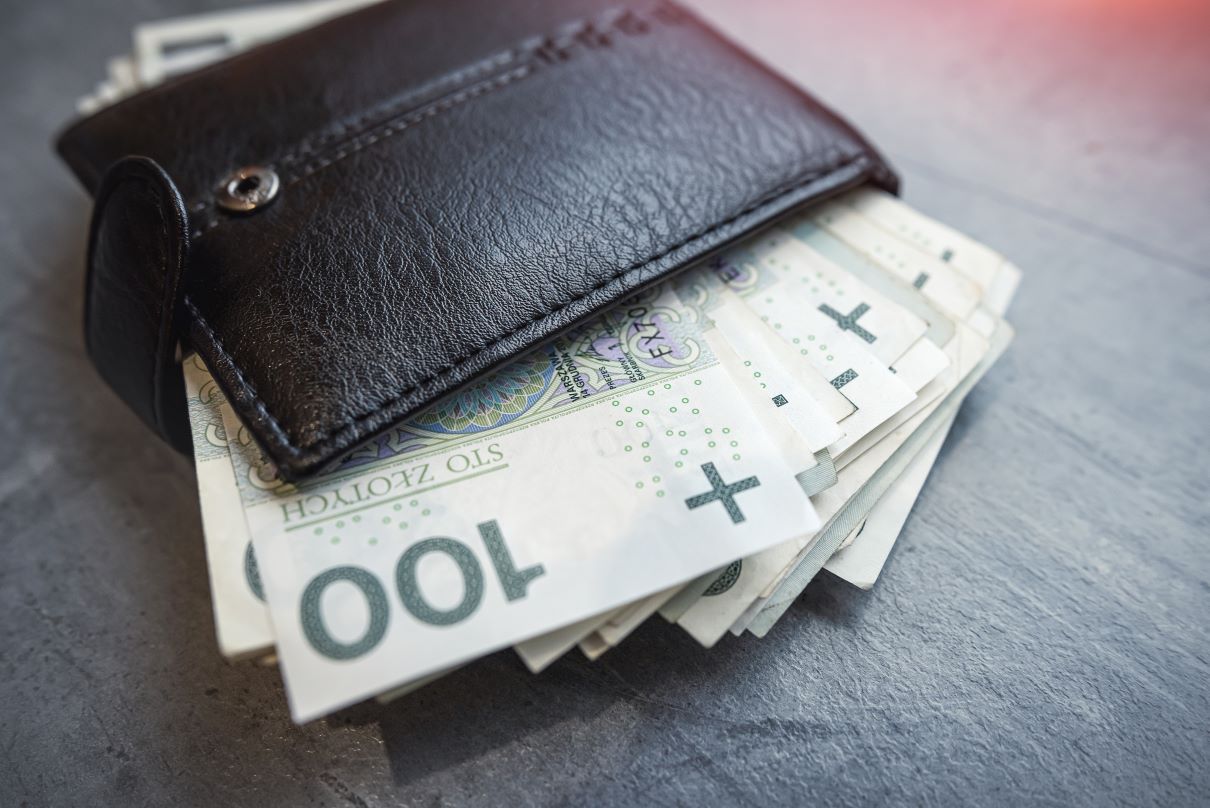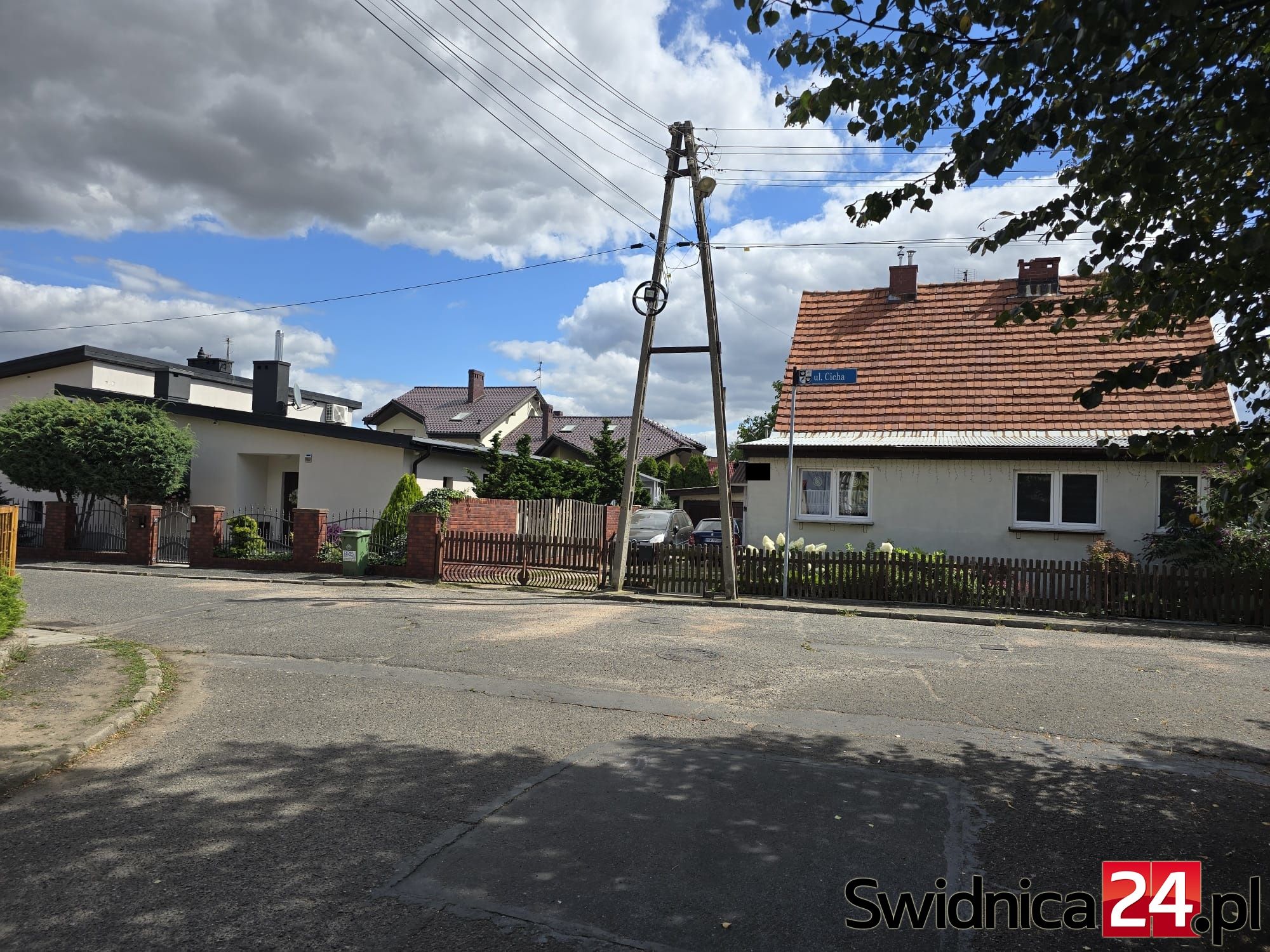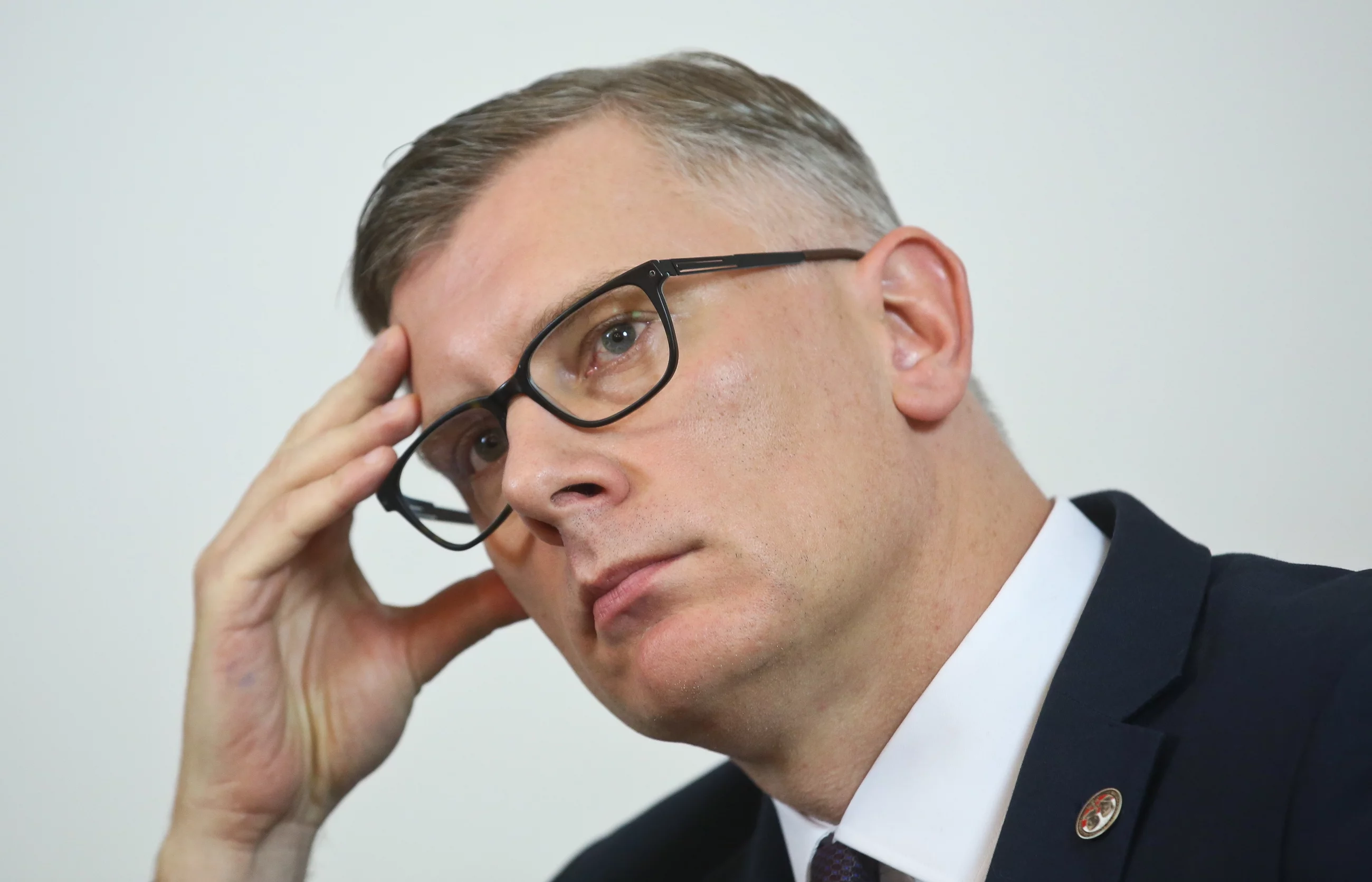Mikołaj Wozniak, Konrad Falkowski
1.04. Head of French Diplomacy in China
First day of April French abroad Minister Stéphane Séjourné spent in talks with his Chinese counterpart Wang Yi and Prime Minister of the People's Republic of China Li Qiang. During his gathering with Wang Séjourné, he stated that China "plays a key function in... respecting global law, including the sovereignty of Ukraine, so we clearly anticipate China to send a very clear signal to Russia". Moreover, he added during the press conference that, in the opinion of France, but besides of Europe as a whole, "there will be no lasting peace unless it is negotiated with the Ukrainians" – these words were a kind of consequence to the Chinese's repeatedly insistence that Russia should be included in the European safety architecture. He besides stressed that maintaining dialog with the Chinese in the context of the end of the war in Ukraine is simply a ‘important issue’. The French Head of Diplomacy besides raised the European issue "risk reduction“ in economical relations with China. Namely, he stated that France does not plan to completely ‘cut off’ from the People's Republic of China. At this point, the French side proposes a "re-establishment of economical balance" which would translate into "healthy and sustainable" trade relations. Wang Yi appreciated the French rejection of the "decoupling" and felt that it was impossible to "disconnect" from China, and that "decoupling" was the "highest risk". How read The Chinese paper “China Daily”, “as a sign of the importance Beijing attaches to its relations with Paris, both Prime Minister Li Qiang and abroad Minister Wang Yi met him [Séjourné] separately”. During the talks between the Chinese Prime Minister and French abroad Minister Li pointed out that China expects a unchangeable relation with France, as it will then contribute not only to the appropriate improvement of both countries, but besides to "implant the certainty of planet development". Li further expressed his hope that France would urge the European Union to "observate economical rights and marketplace principles", which should be treated as Chinese opposition to many EU investigations in connection with unfair economical practices, according to the EU. Séjourné, in turn, was to point out that his country advocates independency and independency – here referenced to president Macron's celebrated words about "strategic autonomy“ — and that it opposes the formation of fresh blocks in the global system, the disruption of the supply lines, and — most importantly for Beijing — that France inactive respects the policies of 1 China. Looking more broadly at Stéphane Séjourné's visit to China, it can be concluded that this is not a regular work meeting, but a prelude of its kind or the preparation of the ground for the May visit of president Xi Jinping in Paris.
3.04. EU investigation into Chinese PV in Romania
3 April EU Initiate 2 investigations concerning companies participating in the tender for the production of a PV farm worth EUR 375 million in Romania. The adoption of these initiatives stems from suspicions that companies applying for contracts are subsidised by the Chinese government. First investigation concerning Romania's Enevo Group with a German company that is dependent on Chinese PV giant LONGI Green Energy Technology Co. The second is related to companies that are 100% owned by the Chinese state-owned Shanghai electrical Group Co. The intent of the investigation is how reported EU interior marketplace Commissioner Thierry Breton, a preventive action to keep the safety and competitiveness of the EU market. In consequence to these developments, the Chinese Chamber of Commerce to the EU expressed serious concern about the investigations and concluded that these actions hit the functioning of Chinese companies in Europe. The European Commission has until 14 August to deal with the matter. The above investigations are second and 3rd in order after the entry into force of the regulation in 2023, which allows the European Union to control undertakings participating in public tenders whose contract value exceeds EUR 250 million. EU first fresh investigation provisions has been completed after the withdrawal of the Chinese maker of Qingdao Sifang Locomotive trains from the Bulgarian tender for electrical trains.
8.04. Minister of Commerce of the PRC in defence of the Chinese EV sector in Europe
Wang Wentao, Chinese trade minister, set out to Europe to defend the Chinese electrical vehicle sector. Rumors about the journey took place in late March of that year. The first gathering was held in Paris on 7 April, where Wang sat at a circular table with representatives of 10 Chinese electrical vehicle manufacturers including BYD, CALT and Geely. This conversation was preparation to discuss the ongoing European investigation to see if Chinese electrical car companies receive support from Beijing. According to a message by the Chinese Ministry of Commerce, published on 7 April, Wang reiterated Beijing's position during the meeting, maintaining the thesis that Chinese electrical vehicle manufacturers do not receive subsidies from the government to increase marketplace competitiveness. He besides added that the claims made by Americans and Europeans regarding overproduction and subsidies were wrong. Indeed, the success of Chinese automotive is based on innovation, "perfect" supply chains and full marketplace competition. He besides said that the Chinese government would actively support companies in protecting their rights and interests. The same day Wang met be with the CEO of Renault, Luca de Meo, who besides serves as president of the European car Manufacturers Association (ACEA). Luca de Meo suggested to its Chinese counterparts to decision much of the supply to continental Europe, additionally invited the Chinese side to consider joint R & D projects on next generation batteries technologies. Both the Ministry of Trade and ACEA did not comment publically on this meeting. Wang’s Next Talks held 8 April with the delegate of the Minister for abroad Trade, Franck Riester, and Finance Minister Bruno Le Maire. During the meetings, he informed his interlocutors that Anti-dumping investigation concerning French brandy in China is not related to the EU-initiated investigation of Chinese electrical car manufacturers. In addition, expressed China's willingness to cooperate with France and openness to dialog on the increasing bilateral economical and commercial problems.
9.04. EU investigation into Chinese wind turbine suppliers
The European Commission will shortly examine the issue of wind turbines originating in China, which informed EU Competition Commissioner Margethe Vestager on 9 April. It has not provided information on precisely what companies will be checked, but the investigation will be subject to the conditions under which wind parks were created in Spain, Greece, France, Romania and Bulgaria. In the EU alone in 2023 imported from China turbines and components to them worth $1.42 billion. Investigations on this issue are mainly carried out by expanding concerns in Europe and the USA as regards the emerging information indicating that Chinese companies are being dumped by Beijing. These parties object to unfair competition and deliberate action to destruct their local producers. Earlier in 2009-2021, the Chinese government openly subsidized wind energy programmes, and local governments and central banks do so indirectly to this day. An example of this action is last year's 25% (up to $1.2 trillion) growth production loans in 4 large Chinese state banks, which were targeted at strategical sectors specified as technology and clean energy, including wind energy. At the same time, national financing of home producers was banned in Europe in order to strengthen their competitiveness by offering lower prices or deferring payments, in line with the OECD free trade rules. Despite the fact that European Siemens Energy and Vestas are inactive at the forefront of wind turbine suppliers for European wind farms, they are increasingly experiencing increasing competition from their cheaper Chinese competitors. This situation threatens their position as the prices of Chinese turbines are around 20% lowerto weaken the position of European entrepreneurs in the global race for the improvement of more efficient and cheaper turbines. According to the Global Wind Energy Council in 2023 China owned the largest the production capacity of wind turbines, which represents 60% of planet production. China's position was expressed on 10 April by the spokesperson of the Ministry of abroad Affairs Mao Ning. She criticized it considers the EU's attitude and its policy to be protectionist. She besides added that the European side uses discriminatory tools that affect companies and the Chinese manufacture in the EU, which violates the WTO rules.
11.04. Meloni seeks a reset in relations with Chinese
On 11 and 12 April, Italian abroad Minister Antonio Tajani and Chinese Minister of Commerce Wang Wentao took share in the 15th edition of the Italian-Chinese Joint Committee on economical and Commercial Cooperation and participated in the beginning of the Business and dialog Forum. Both events took place in Italian cities – Venice and Verona. The Joint Commission is simply a format which is the main instrument for economical and trade cooperation between Italy and China and besides 1 of the mechanisms for dialog of the Global strategical Partnership, which was established in 2004. In turn, the aim of the Business and dialog Forum is to support discussion and cooperation in sectors applicable to the economy and trade. During press conference Tajani, who was asked about these sectors, replied that they were the following sectors: agriculture, e-commerce, investment, pharmaceutical and biomedical. He besides stated that, out of the fact that Italy is simply a "strongly export-oriented country", China "remains a strategical economical and trade partner for us". The function of the Joint economical Commission was besides asked. Tajani replied: “[...] will enable us to consolidate the current phase of re-definition and re-establishment of bilateral relations”. From the above words it can be concluded that Italy is looking for opportunities for a fresh hand in relations with the Chinese. The writer noticed this Donato Paolo Mancini in "Bloomberg", who stated that Italian Prime Minister Georgia Meloni was looking for or demanding a "reset with China" after last year Output Italy from the Chinese Belt and Road Initiative. In his opinion, Meloni's policy is to prove to be a political triumph, "if she manages to keep an crucial business relation with China and at the same time keeps the promise made by her party, the Italian Brothers, who wanted Rome to leave the BRI". In short, the Italian prime minister wants to have a cookie and eat a cookie, more specifically a Chinese cookie.
14.04. Scholz in China
German Chancellor Olaf Scholz, on a three-day journey to the People's Republic of China, hoped to keep the European Union's hard line on reducing economical dependence on China, the alleged policy of derisking. However, many researchers believe that it was completely different. Another equally crucial subject raised at that time was the war in Ukraine. On April 14, Olaf Scholz began his visit to China. Before gathering the president of the PRC Xi Jinping Scholz went to National tour After China, i.e., he first went to Chongqing – a Chinese town in which, among another things, Bosch's branch for the improvement of the hydrogen manufacture is located. It is worth noting that at the time the German Chancellor powerfully expressed his views on Iran attacks for Israel, informing that specified action only leads to further escalation of the conflict. The second halt was Shanghai, and there he visited the Covestro Innovation Centre, which produces plastics, and held a gathering with students from Tongji University, during which he was asked about the issue, among others, legalization of marijuana Germany. Only on the last day of his stay in China, Scholz arrived in Beijing, where he spoke to Xi and the Prime Minister of the PRC Li Qiang. At the outset, it must be noted that Scholz was accompanied by a large delegation, which, in addition to the ministers of agriculture, digitisation, transport and the environment, besides consisted of 12 representatives German industrial companies, specified as Mercedes, Volkswagen, BMW or BASF, which was already announced in early April. Therefore, Andreas Fulda, a German investigator and publicist, seeing pictures of the talks that were attended by these representatives, asked with a snack on his profile on platform X: “Who exercises real power in German abroad policy?” The question is highly legitimate, looking at the full issue from the position of an EU hazard simplification in economical relations with China, which is – cannot be hidden – very unfavourable for German tycoons who want to proceed to deepen relations with Chinese. According to analysts from the Polish Institute of global Affairs, the main intent of the visit of the German Chancellor “was stabilization bilateral relations with the emphasis on economical cooperation". But as it turned out, his approach in the conversation with Xi was not "enemy" and "conciliation” as Alexandra Stevenson and Melissa Eddy put it in the fresh York Times. Z Chinese message It can be seen that Scholz gave Beijing reason to believe that “the German side opposes protectionism and promotes free trade. As an crucial EU member, Germany is ready to play a affirmative function in promoting the healthy improvement of EU-China relations, which powerfully affects the policy pursued by the European Union. In this way, it can be suspected that specified a turn of events will contribute to a certain degree to the weakening of the improvement of the crisis, and besides points to lack of unity among EU countries, which will only weaken the European Union's global position. Moreover, Scholz's breakthrough efforts to convince the president of the PRC to ‘stop’ Russia have not been proven. He had ask Xi to influence Vladimir Putin to end the war in Ukraine. However, it is highly doubtful that any requests or pressures on this substance can come true, especially erstwhile the European side completely excludes the anticipation of peace talks with Russia, which is highly crucial for China. This in turn translates into the importance of the planned peace conference in Switzerland. Xi does not deny it in any way, on the contrary, openly supports it, but believes that it must be recognised "by both Russia and Ukraine, with equal participation by all parties". Following this lead, it can be predicted that there will inactive be no agreement on Ukraine on the Brussels-Pekin line until the West is down.
22.04. Chinese espionage in Germany
Monday 22 April German national prosecutor reported the public opinion that 3 German nationals were arrested in connection with suspicions of spying on the benefit of the People's Republic of China. The detainees were to supply Chinese secret services with information on the state-of-the-art engine parts utilized in marine vessels. The 3 defendants were Herwig F., Ina F. – a matrimony moving its own company Dusseldorf, which through it concluded a cooperation agreement with the German university consisting in preparing for the worker of the Ministry of State safety of the PRC a survey on parts of machinery that can be utilized in ship engines, including warships – and Thomas R., whose German prosecution described as an agent working for Chinese secret services. They're suspected of being arrested. involved in investigation projects that could be useful for Chinese to increase Chinese maritime power. Nancy Faeser, Minister of the Interior of Germany, stressed the government's actions in monitoring spy activities, which poses a serious safety threat to German business, manufacture and science: "We are looking very closely at these risky situations and threats, we have clearly warned and increased awareness of them in order to increase safety measures everywhere." Minister of Justice Marco Buschmann stated, writing on his profile on X platformthat the full situation "shows one more time that we must stay vigilant". People's Republic of China, through its embassy in Berlin, powerfully rejected German allegations of technological espionage and called on the national Republic of Germany to "stop utilizing espionage charges to politically manipulate China's image and defamation of China".
23.04. AfD associate detained on suspicion of spying for China
Only a day passed, and another suspected individual was again detained in Germany for spying on the People's Republic of China. April 23 German police arrested an associate of the German far-right alternate organization for Germany. According to information provided by prosecution The RFN suspected of espionage is Jian G. (Guo), serving as assistant to 1 of the leading AfD candidates in the European Parliament election – Maximilian Krah. The subject suspects that the detainee may have provided information on discussions within the EU legislative structures to the Chinese Ministry of State Security. Prosecutors believe that a man may have conducted his spy activity for many years. Investigators besides accused Guo of spying on Chinese opposition activists surviving in exile in Germany, claiming to be dissident and providing information to their liaison. How read Reuters, on the AfD candidate's website for PE Jian Guo is featured on it by his assistant Krah. About the full affair, in turn, the 1 curious – according to his words – was to learn from the media. Simultaneously confirmedthat he inactive remains the main candidate for the EP, and as far as spy issues are concerned, he said that "no individual fault" could be blamed on itself. He stressed "Spying for a abroad state is besides a serious accusation. If the allegations are confirmed, the employment relation [with Jian Guo] is immediately terminated.’ Nancy Faeser, national lawyer General, commented on the full case in her entry "If it is confirmed that the European Parliament has been spying on Chinese intelligence services, it will be an interior attack on European democracy. Anyone who employs specified an worker shall be liable for this." The Chinese side responded to German charges the same day. Chinese Ministry of abroad Affairs spokesperson Wang Wenbing during press conference commented This, saying that it is primarily a "media noise" to discredit China in the eyes of the public and undermine the "atmosphere of cooperation between China and the European Union". Moreover, he expressed his hopes that “the right people in Germany would abandon the Cold War mentality and halt the political manipulation of China, which carries the alleged spy risk.”
23.04. EU bans imports of goods with forced labour
23 April European Parliament Accepted a fresh law that makes all goods with forced labour illegal throughout the European Union. The Act does not mark any state directly, but from the very beginning it was known that the fresh rules were to hit Chinese products due to the fact that how read Reuters, "This movement was carried out by EU legislators who care about human rights in the Chinese region of Sinciang". Under the fresh law, decisions to initiate investigations will be based on facts and verifiable information. The information provided by the EP shows that, erstwhile initiating any investigation in this case, it will take into account respective factors and hazard criteria, "including the universality of forced labour imposed by the State in certain economical and geographical sectors". The companies to be proven to be utilizing forced labour will be subject to sanctions in the form of withdrawing their products from the EU market, donating them, recycling them or destroying them. Any re-authorisation of the marketing of these goods will take place erstwhile the company afraid "removes forced labour from its supply chains". The day after the announcement of the fresh ban in Chinese “Global Times” appeared Article, where in the first conviction the question of forced labour is called "so-called", and it is explicitly said that China is aware that the fresh law is aimed at it: "The European Parliament on Tuesday approved government prohibiting goods manufactured under the alleged "compulsory labour" which does not mention to China but is considered to be directed at them, thus placing a shadow on China-EU trade". Zhao Junjie (Chinese Academy of Social Sciences’ Institute of European Studies) in a conversation with the “GT” said that the fresh EU government would only harm the Union itself and that “the [Member States] would act in accordance with their own interests alternatively of listening exclusively to the anti-Chinese trumpet of the European Parliament”.
29.04. Xi Jinping's May tour of Europe
A spokesperson for Chinese MFA Hua Chunying officially announced on April 29 at a press conference that the president of the People's Republic of China Xi Jinping would win in its planned travel to Europe, during which he will visit 3 countries: France, Serbia and Hungary and meet with their leaders: president Emmanuel Macron, president Alexandar Vučić and president Tamás Sulyok and Prime Minister Viktor Orbán. The European tour of Xi is scheduled to last from 5 to 10 May. This will be his first journey to Europe in 5 years, which aims to improve relations with the European Union. The most crucial halt will undoubtedly be Paris, and Xi's gathering with Macron has – according to another MFA spokesperson of the PRC Lin Jiana "To bring the comprehensive strategical partnership between China and France to a fresh level and give a fresh impetus to the healthy improvement of China-EU relations". It should besides be added that European Commission president Ursuli von der Leyen, Eric Mamer, confirmedthat she will besides have the chance to meet China's leader. She will arrive in Paris on May 6 at the invitation of the president of France. According to the writer “South China Morning Post” Finbarr Bermingham, Von der Leyen's presence during his visit to Paris is intended to constitute a “Europeanisation” of the full Chinese leader's journey, which in turn “belongs to Macron's diplomatic behaviour”. It is expected that Xi's conversation with Von der Leyen will orbit primarily around EU "derisking". Xi Jinping will besides hold talks with the president of Serbia, who is not a associate of the European Union, but it must be borne in head that it can be a kind of "away base" in the Balkans. The last halt will be Budapest, which – 1 can anticipate – is the biggest concern for EU officials due to the prognostic attitude of the Hungarian Prime Minister. The Xi-Orban gathering is likely to be closely monitored by both political commentators and EU dignitaries. Paulina Uznańska, expert at the Mark Karp East Studies Centre, concluded that the challenge waiting for Xi Jinping has 2 dimensions: strategical and economic. strategical because, in her opinion, "a sense of hazard is increasing among European countries... risks in cooperation with China", which is mainly due to the pro-Russian attitude of Beijing in the Russian-Ukrainian conflict, whose future destiny is fundamental to the European Union and its members. On the another hand, the economical side, as the EU is increasingly insisting on safeguarding the safety of its own economical market, which in turn creates fresh anti-subsidy investigations and another mechanisms to safeguard the EU marketplace against unfair competition, in this case Chinese competition. Xi wants to slow down or limit this process as much as possible. According to Uznańska, it is impossible to completely reverse the current trends in EU economical policy, but through, among another things, the improvement of good and strong bilateral relations with individual EU countries, Beijing is in a position to slow down the EU's safeguards to any extent.
Photo: Canva














![„Raz sierpem, raz młotem, czerwoną hołotę”. Kolejny atak na olsztyńskie „szubienice”. Kto stoi za aktem wandalizmu? [ZDJĘCIA]](https://static.olsztyn.com.pl/static/articles_photos/44/44591/0ddf0751c9287e16d09122c78f8356f1.jpg)



